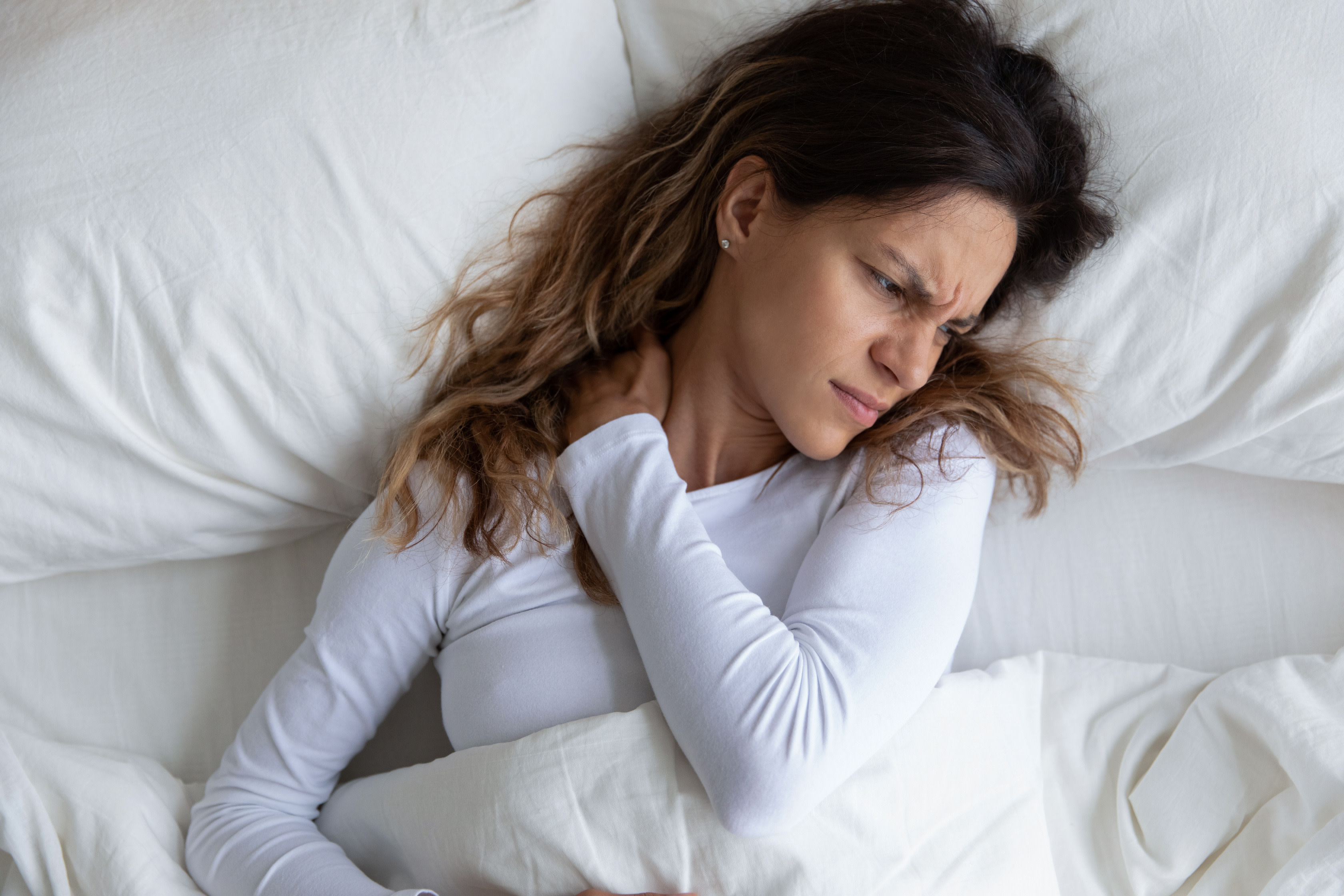Dormir con dolor de cuello: mejores posiciones y consejos
Obtén ayuda con el dolor de cuello cuando duermes con consejos de PT para buenas posiciones para dormir, estiramientos suaves del cuello y más.
$0 costo para usted
Última actualización: Jun 5, 2025
El índice
Fully covered neck pain relief
Find relief from neck pain, a pinched nerve, tech neck, & more.
Check if I'm eligibleNighttime exercises for neck pain
¿Quieres atención de expertos? Consulta si estás cubierto por nuestro programa gratuito →- La cabeza gira con las manos
- Mentones
- Relojes escapulares
- Abridor de columna en T
